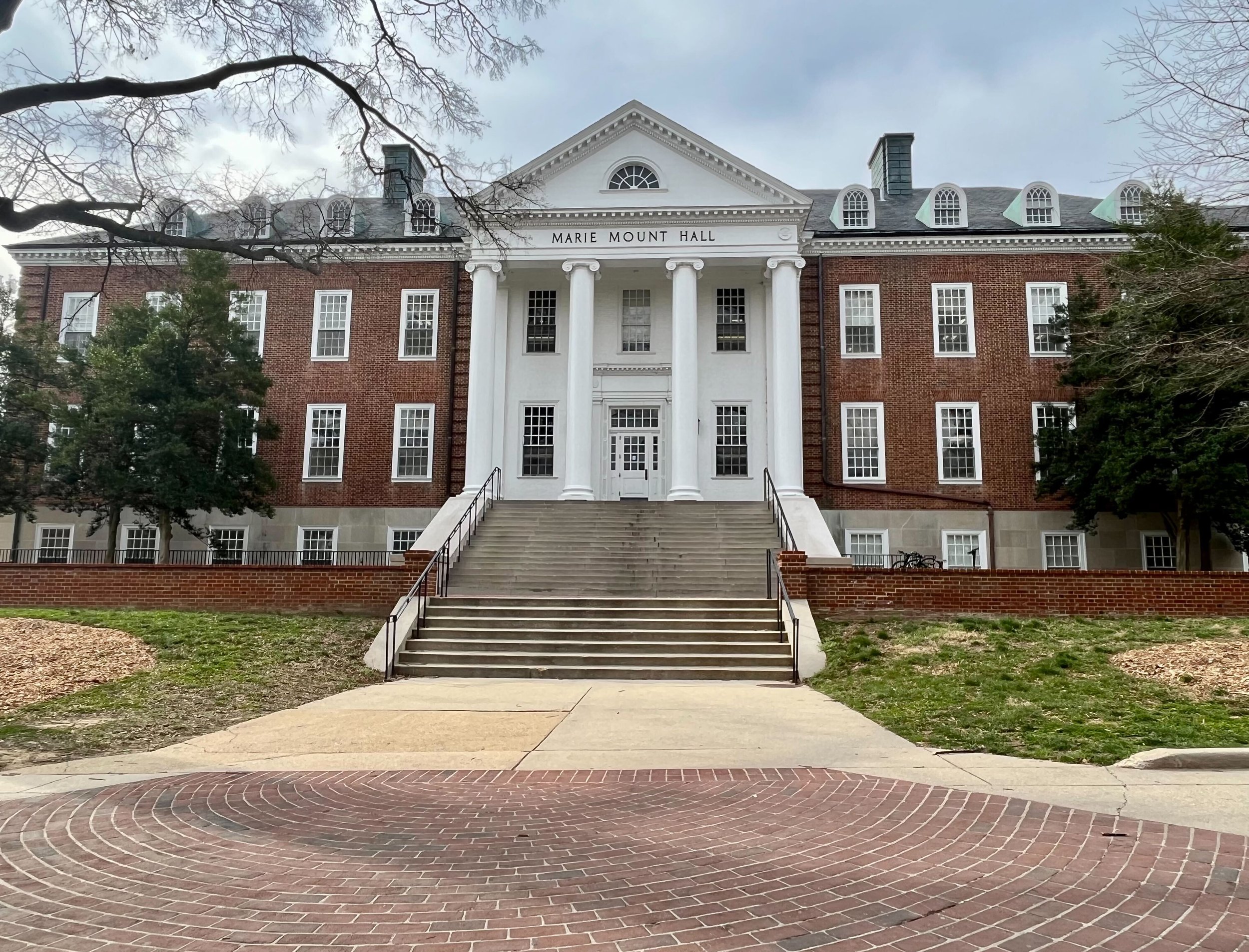Anti-LGBTQ+ legislation across the U.S. worries UMD’s Black LGBTQ+ community
Marie Mount Hall, home of the LGBTQ+ Equity Center at the University of Maryland. (Mario Morais/Black Explosion)
Conservative states such as Florida, Texas, and Kentucky are moving swiftly to restrict LGBTQ+ rights this legislative season.
This legislation has created a hostile climate throughout the U.S. for queer individuals activists say, and students at the University of Maryland are taking notice.
The American Civil Liberties Union (ACLU) has been tracking 421 anti-LGBTQ+ bills in state legislatures across the United States. The subjects of these bills include healthcare, education, LGBTQ+ civil rights, and other critical gender-identity and sexuality issues.
“I’ve been seeing a lot of stuff in Florida [where] Ron DeSantis has not only been pushing [for] not only anti-LGBT but also [against] critical race theory and gender studies,” said senior government and politics major Jordan Howard.
Transgender individuals especially are in the crosshairs of many conservative state legislatures ahead of the 2024 election season.
Anti-LGBTQ+ laws leave many students concerned about their future after college and wondering where it’s safe to be their authentic selves.
“It’s made me think that when I have the finances to do so I might relocate to a whole different country or a more accepting state. It’s made me consider what workspaces I want to go into,” said freshman civil engineering major David Oloye.
The current rhetoric surrounding this subject has ignited a vilification of LGBTQ+ individuals. Many students feel people are too quick to attack an identity they barely understand.
“We are more than our sexuality. We’re not just walking sex machines. We are actual people, with actual lives, actual feelings, and actual struggles,” Oloye said.
Some Black LGBTQ students feel that non-queer members of Black communities have failed to stand with their LGBTQ members.
Junior sociology major Taylor Curtis blames a stigma in these communities that says Black and queer identities can’t coexist.
Curtis hopes Black people acknowledge the queerness within Blackness and stand with LGBTQ+ people at this critical moment.
“There is queer history of Black-queer people doing great things and putting them on the map like ballroom culture and how big it’s grown, and even some music genres,” Curtis said. “Put your biases to the side and acknowledge this.”
The fate of LGBTQ+ rights is once again uncertain. How legislation at the state and federal levels in the U.S. will determine the accessibilities and freedoms of LGBTQ+ individuals for years to come.

